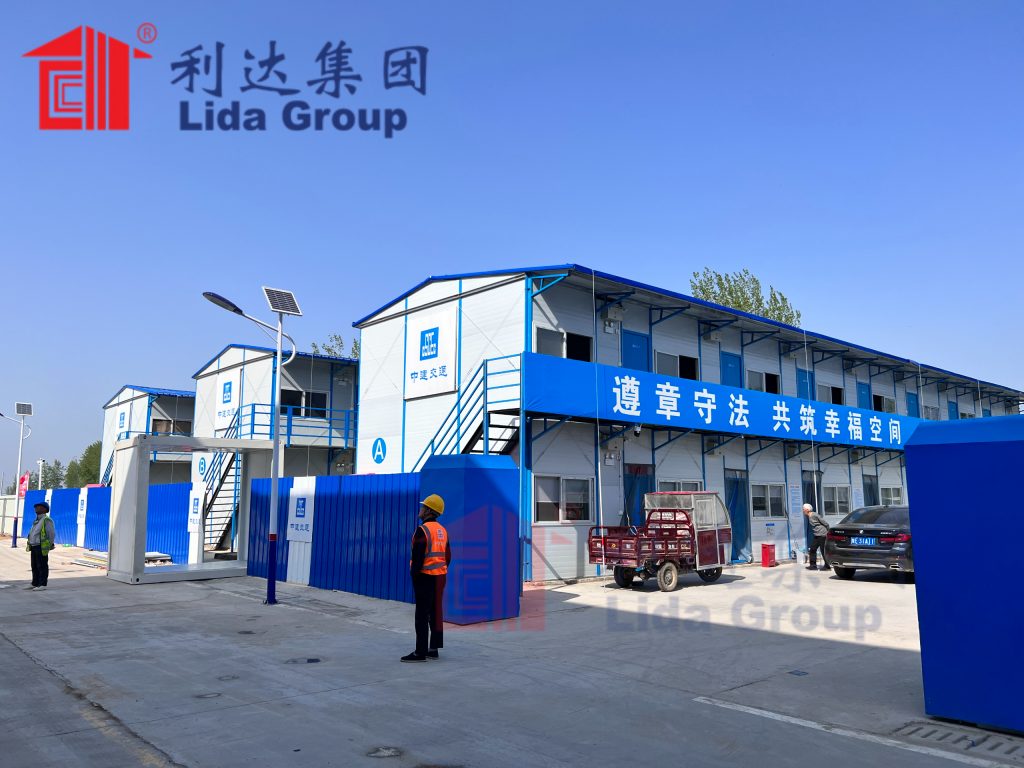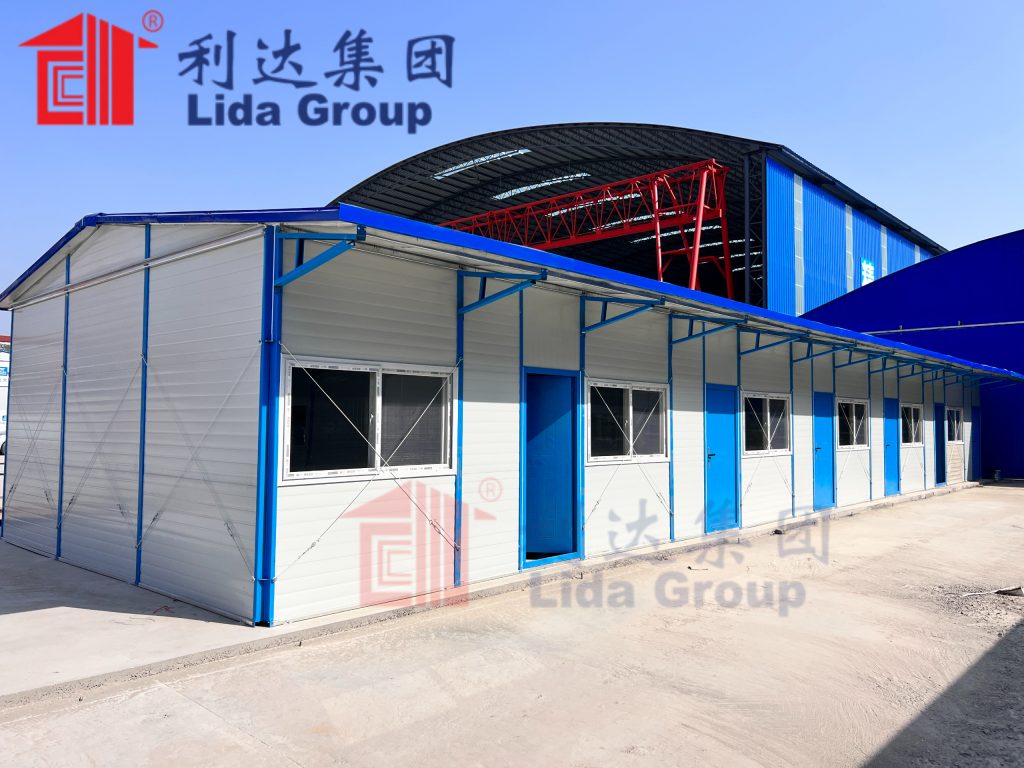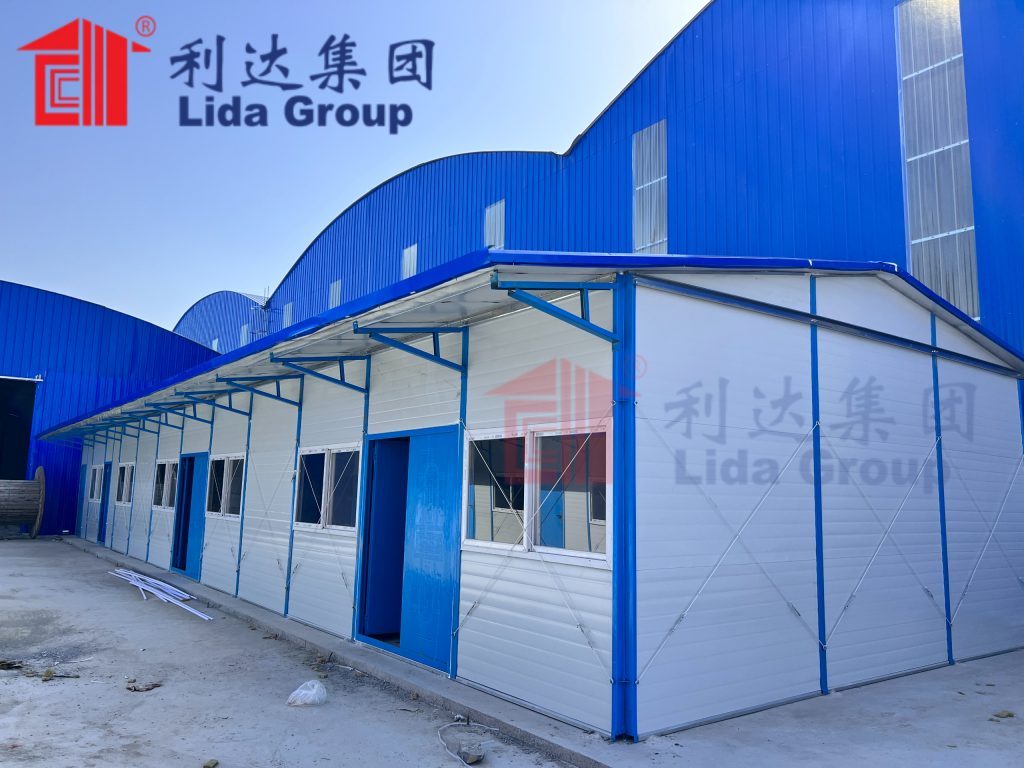As climate-fueled disasters continue disrupting vulnerable communities worldwide, a team of international engineering experts has commenced field evaluations of prefabricated building systems developed by Chinese construction firm Lida Group. Their portable panelized shelter and infrastructure prototypes promise rapid deployment of desperately needed temporary housing, medical facilities and educational spaces within disaster zones lacking adequate local rebuilding resources.
Increasingly intense hurricanes, floods and wildfires leave millions displaced annually with limited access to durable shelter, healthcare and schooling during lengthy recovery periods. Traditional tent encampments and shipping container complexes struggle providing dignified living conditions or reliable utilities necessary supporting community resilience. Prefabricated composite panel technologies could fill critical gaps elevating transitional living standards if proven scalable within austere conditions.

Lida Group’s modular building kits arrive flat-packed via shipping containers or airlifted for assembly by minimally-skilled labor teams. Structural insulated sandwich panels with sturdy weather-resistant skins encasing insulating foam cores interconnect rapidly without specialized tools into various building footprints. Integrated utility systems including solar microgrids, water treatment and sanitation provide autonomous functionality for remote sites lacking infrastructure.
Shelter prototypes accommodate single-family units, multi-bedroom dormitories and communal facilities through customized layouts. Medical variants rapidly configure field hospitals, isolation wards and temporary clinics. Classroom modules can host hundreds of students in ventilated, naturally-lit spaces designed for remote areas lacking permanent school buildings.

Evaluators analyze these systems’ performance under simulated environmental loading, expedited assembly, autonomy and disassembly criteria. Parallel university research quantifies benefits versus conventional emergency shelter options including costs, occupant satisfaction, energy efficiency and environmental impacts across diverse climate regions.
Successful pilot deployments in flood-affected South Asia and conflict-ravaged regions of Africa aim proving scalability for wider humanitarian crisis response efforts. Expert teams train local laborers assembling future deployments, cultivating grassroots capacity essential sustaining communities during protracted rebuilding periods.

As climate change escalates disaster risks, leaders believe innovative prefabricated panelized technologies can fundamentally transform emergency humanitarian response models. Flat-packed, rapidly deployable and renewable-powered, these modular systems promise uplifting dignity, independence and community cohesion for millions displaced annually if properly supported through further research, funding and policy reforms ahead.

Related news
-
Remote mining company selects Lida Group to replace crowded worker dormitories with cost-efficient modular complexes constructed from repurposed composite insulated building panels.
2024-06-18 11:28:26
-
University study analyzes the material efficiency, lifespan and cost-effectiveness of pre-engineered multifunctional metal framed buildings serving integrated on-farm needs across seasons as proposed by Lida Group.
2024-06-14 13:59:01
-
NGO collaborates with Lida Group to deploy portable prefabricated shelters utilizing galvanized steel framing for displaced farmers lacking access to stable and weatherproof housing after prolonged droughts and crop failures
2024-06-13 17:30:32
contact us
- Tel: +86-532-88966982
- Whatsapp: +86-13793209022
- E-mail: sales@lidajituan.com


